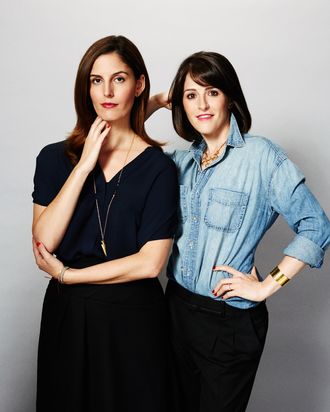
There’s a sci-fi movie from 1988 called They Live. It is by no means a good movie, Soraya Darabi, co-founder of the elegant online fashion retailer Zady, is quick to point out—but it did make her have an epiphany.
“This guy discovers sunglasses on the street, puts them on, and suddenly sees the world differently. Like, every billboard only has words on them like ‘consumerism,’” she says. “It’s very dramatic and ridiculous. But it was a life-changing film for me, because I realized I wasn’t really seeing the world. And now I have They Live sunglasses.”
About two years ago, Darabi and her Zady partner Maxine Bédat, her high school friend from Minnesota, were discussing their jobs after reconnecting in New York City. Darabi was a tech guru helping launch start-ups, and Bédat was a lawyer who started the non-profit Bootstrap Project, to benefit impoverished artisans across the globe. Enlightened shoppers, they lamented the uncertainty of not knowing where their clothing came from and the conditions those garment workers existed in.
“It became our obsession, and that was the impetus for creating Zady,” says Bédat. The duo, who launched their site last year after raising $1.35 million in funding, frequently visits vendors across the world for quality checks. They also expand business by leaning on vendors for referrals and considering customer feedback. Zady, which donates five percent of sales to The Bootstrap Project, means “grandfather” in Yiddish and “prosperity” in Arabic, and represents the idea of, Bédat says, “bringing prosperity to the heritage-craft tradition.”
While Zady is an alternative to what Bédat refers to as “the fast fashion we’d grown up with,” it is likewise driven by practicality. “We focus on timelessness. We’re looking for signature pieces that last past a season,” she says. “Like, I still use the same eyeliner I used in college.” Adds Darabi, laughing, “And I’ve had the same haircut since age 12.”
“As a generation, we’re going to yoga more. We’re thinking about the food that we eat. And now, we’re thinking about the clothing that we wear,” says Bédat. “Those choices have really positive impacts on the world.” This is, says Darabi, “activism through advocacy.”







